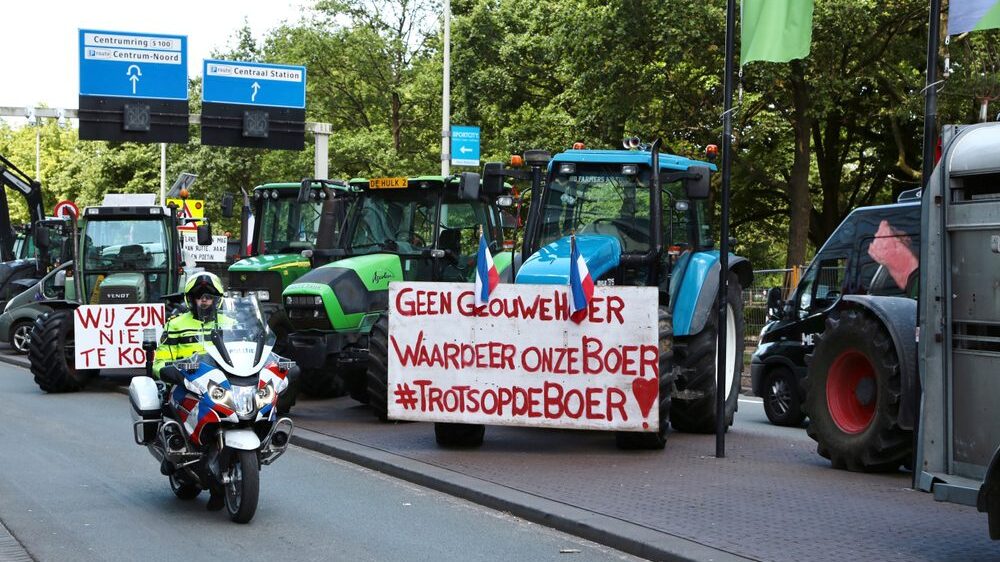
Photo: Nancy Beijersbergen / Shutterstock.com
Convoys of tractors rolled into the Hague Thursday morning, June 29, as farmers took to the streets to coincide with a debate in the Dutch Parliament regarding the future of controversial emissions legislation.
The Farmers Defence Force (FDF), which has spearheaded protests, defied a last-minute decree from civil authorities banning tractors from entering the city centre, as they amassed on motorways heading into the Hague.
— Miranda (@myroendoe) June 29, 2023
This was just the last round in a string of protests that have rocked Dutch politics since 2019. Talks between the government and farmer groups to resolve the ongoing dispute collapsed last week.
Two protestors were arrested for public order violations, as farmers attempted to reach the Dutch House of Representatives where the debate was ongoing.
After a brief altercation with authorities outside Parliament where protestors had attempted to erect a stage, farmers were forced to renew their protest in the nearby greenfield site of Malieveld.
Overall, there was a rather subdued presence compared to the usually febrile FDF demonstrations. Organisers brought together around a hundred tractors, according to media reports, despite statements from the FDF that thousands of protestors would flood the city centre.
The leader of FDF, Mark van den Oever, had previously declared that tractors would be at the “forefront of the battle” for the day of protest at the Hague, as farmers hoped to capitalise on the breakdown of talks to resolve the issue.
Van den Oever himself was in hot water earlier this week after publishing the phone numbers of government ministers on Twitter in what officials have called an act of intimidation.
Within Parliament, government MPs said they were confident that the farmer’s dispute could soon be put to bed as Attje Kuiken, the leader of the Dutch Labour Party, intoned that farmers should accept that food production must be radically scaled back to save the environment.
Farmers object to tight new nitrogen emission targets, which officials declare as being essential to protect the environment and which populists say are needless and designed to engineer a collapse in Dutch agricultural production.
The wave of protests led to the electoral rise of the agrarian populist BBB party in recent regional elections. The protests are expected to intensify as the Dutch government moves ahead with mandatory purchase orders on non-compliant farms.
The Hague has been the rallying point for farmers since the outbreak of protests and the site of multiple mass rallies, where revolting blocked roads and protesters faced off against Dutch police. The demonstration is tied to a general wave of agrarian discontent around Europe, making it unlikely to disappear any time soon, as farmers decry sinister forces attempting to marginalise food production under the guise of green reforms.
